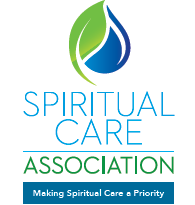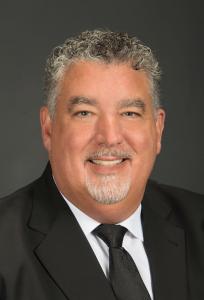No. 2 in Series: Spiritual Care Association Committed to Developing Resources, Tools for Chaplains to Become Better Educated in Mental, Behavioral Health Issues
NEW YORK, UNITED STATES, May 10, 2022 /EINPresswire.com/ -- The COVID pandemic has impacted Americans of all ages, and children have not been spared. The American Academy of Pediatrics reports about 12.9 million child cases of infection since September 2021 at the time of this writing, which means children make up about 19% of all reported cases in the U.S. since the pandemic began (1). Although COVID infections have caused fewer deaths, lower hospitalization rates, and less physical harm to healthy children, the pandemic has produced significant mental health impacts on young Americans. The CDC warns that “trauma faced at this developmental stage may have long-term consequences across their lifespan” (2).
The social and educational disruptions caused by school closures as well as preventive measures such as masks and social distancing in classrooms may increase the sense of risk and isolation for young persons. Family discord as well as increased alcohol and drug consumption by the adults in a child’s life can add to their distress. In addition, young people often have a more pervasive online presence than their parents, exposing them to false opinions and “fake facts” that increase their fears and doubts about the safety of the world they live in.
Studies from other viral pandemics have
As experts in our fields of spiritual care and mental health, we are convinced that well-educated professional healthcare chaplains and other properly trained spiritual care providers can play an important role in the healing of children and young adults suffering mental and emotional distress due to the pandemic. To that end, the Spiritual Care Association is committed to developing resources and tools chaplains need to be become better educated around issues of mental and behavioral health. In the meanwhile, here is some practical advice for chaplains who may encounter distressed children and young people and their families in their daily work.
— Working with their clinical colleagues in mental and behavioral health, child life, and pediatrics, chaplains can normalize the conversation about expected psychological responses to the extraordinary stresses children have been exposed to in the last two years. Links to many online resources are available from the website of the American Academy of Child & Adolescent Psychiatry (4)
— Chaplains need to be aware of the emotional and spiritual needs of children and young adults, especially in families that have sustained the loss of a parent or supportive grandparent. For those without training in pediatrics, a course such as SCA’s online module Caring for the Smallest (5) may be helpful.
— Mental health resources for children and adolescents may be limited in many areas. Chaplains should become familiar with the mental health clinics available in their communities for referrals. The CDC’s website contains a free COVID-19 Parental Resources Kit (6) containing resources for families to help children by age group.
— Young people grieve the death or illness of family members, neighbors, or friends, but depending on their age, their grief will manifest in different ways than in adults. There are many online resources for chaplains to learn ways to support children and young adults grieving during the pandemic including the National Alliance for Children's Grief (7).
— As always, by the very nature of their profession, chaplains can provide empathy and hope to children and their families, support that is a critical element in recovery from mental illness. They can promote compassionate, fact-based understanding of the pandemic and the chronic health problems that young people may see in their parents and other adults in their lives.
— Finally, chaplains can become trusted colleagues who can provide evidence-based information and advice to faith leaders in their community as these indispensable agents of healing support the post-COVID recovery of children and families in their congregations.
Rev. Eric J. Hall, DTh, APBCC
Richard E. Powers, M.D.
Reverend Eric J. Hall, DTh, APBCC, is President and Chief Executive Officer of HealthCare Chaplaincy Network, Inc. and the Spiritual Care Association. He is also Chancellor of the SCA University of Theology and Spirituality. Eric also serves as pastor of the Eastchester Presbyterian Church and the Lincoln Academy for early childhood learning. Formerly, he was the founder, President and CEO of the Alzheimer’s Foundation of America. He can be reached at EJHall@SpiritualCareAssociation.org .
Richard E. Powers, M.D. is a geriatric psychiatrist and a neuropathologist. He was trained in pathology at the University of Kentucky as well as psychiatry and neuropathology at the Johns Hopkins Hospital. He is board certified in general psychiatry, and general pathology. Dr. Powers is Medical Director for Behavioral Health at VIVA Inc., the UAB health insurance entity; he is also Adjunct Professor of Pathology, Department of Pathology, the University of Alabama at Birmingham. He can be reached at rpowers@uabmc.edu .
References:
(1) https://www.aap.org/en/pages/2019-novel-coronavirus-covid-19-infections/children-and-covid-19-state-level-data-report/
(2) https://www.cdc.gov/mentalhealth/stress-coping/parental-resources/adolescence/index.html
(3) Meherali, Salima, et al. "Mental health of children and adolescents amidst COVID-19 and past pandemics: a rapid systematic review." International journal of environmental research and public health 18.7 (2021): 3432.
(4) https://www.aacap.org/AACAP/Families_and_Youth/Resource_Libraries/covid-19/resources_helping_kids_parents_cope.aspx
(5) https://www.spiritualcareassociation.org/caring-for-the-smallest-pediatrics
(6) https://www.cdc.gov/mentalhealth/stress-coping/parental-resources/childhood/index.html
(7) https://childrengrieve.org/about-us/news/covid-19




No comments:
Post a Comment